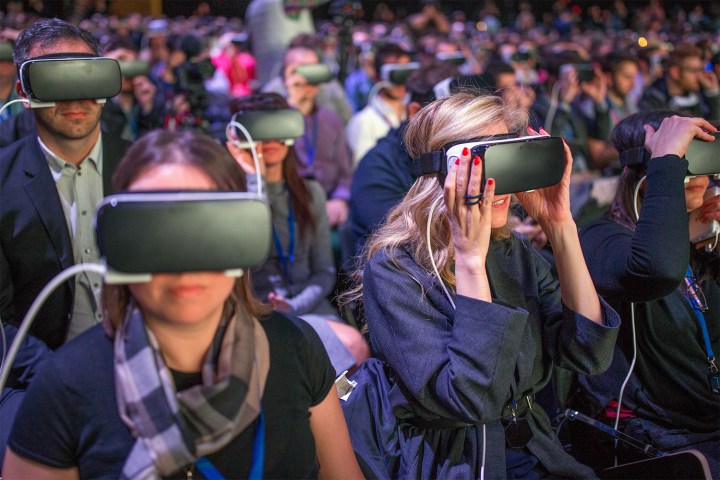
Over the next few weeks, Gear VR and Rift users will begin seeing achievements for blockbuster titles like Minecraft and Hitman Go, plus support in lesser-known titles like Anshar Wars 2. (If you’ve satisfied an achievements’ criteria prior to the update, you’ll earn it retroactively.) They’ll appear in both Oculus Home, the Oculus’ headset companion app for smartphones and PC, and as part of an overlay in games that tap into the new framework.
The management options are fairly extensive. You can view, by title, every achievement you’ve earned over the course of playtime, or disable them entirely. Alternatively, can pick and choose which completed objects your friends can view, and share particularly hard-won victories on the social media outlet of your choice.

Oculus’ achievements system isn’t nearly as robust as, say, those of incumbent platforms like Xbox Live or the PlayStation Network. The latter’s approach, dubbed Trophies, are divided by difficulty into four tiers (bronze, silver, gold, and platinum) and corresponding point values that contribute to an ongoing tally. But for Oculus Home, which caught flack for launching without the ability to change the installation location of new games and software, it’s a meaningful step toward a holistic platform competitive with juggernauts like Valve’s Steam, EA’s Origin, and Ubisoft’s Uplay. It’s not the first: In July, an update added support for automatic app updates and bandwidth download limits.
In terms of users, Oculus Home is well on its way. In May, Oculus announced that more than 1 million people had used Gear VR over that past month alone. It’s a bit short of Oculus executive Brenan Iribe’s ambitions — he told The Guardian in 2014 that the division hoped to drive adoption well past “1 billion” users — but it’s a start.


